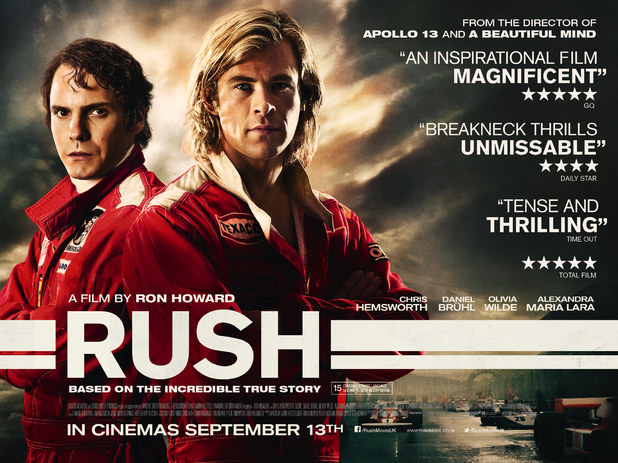Rush producer Andrew Eaton: BAFTA interview
Producer Andrew Eaton has had a pretty impressive career to date: he's worked on projects for both TV and film; has his own production company, Revolution Films, which he set up with long-term collaborator Michael Winterbottom; and now has a Ron Howard film under his belt.
The award-winning producer of 24 Hour Party People and The Trip talked to Tanya Seghatchian at BAFTA's first Producer's Breakfast With strand about working on Rush, starting out in documentary, and his mentors, as well answering questions from the audience.
The Knowledge was there to bring you some of the highlights of the interview.
Â
     
How different was it working with Ron Howard compared to other directors you've worked with?
Really inspiring. He's 59 years old, he's been in Hollywood his whole life and he's incredibly uncynical. His passion is undiminished and he was open to help the crew that we normally work with. He was happy to embrace them and our method of working. The difference between Ron and Michael [Winterbottom] is that Ron likes to talk about everything he wants to do, whereas Michael never does.
Did you make many changes to the script?
With someone like Peter Morgan [writer of Rush, The Queen], not a great deal, as I believe the producer can be constructive but you're not the main driving force. It's a bit like when you see the final film, the best you can do is to be slightly one step removed so that your notes are genuinely third party.
Rush cost $50m to make, do you now want to continue working on that scale?
Definitely. Because the money was there I was able to spend most of my time worrying about the film itself. What I'd love to do is have access to an amount of money where you have complete freedom, and know for certain that you can start shooting on a specific date.
How would you define what a producer is?
A good producer does the whole package. You can't be a good producer unless you're doing everything; the creative and ideas side, working with talent, and the psychical production side, but also getting the money together. A producer is the person who makes things happen.
Do you like getting involved in post-production?
I do, but the more films I do with Michael [Winterbottom], the further down the line I watch a cut.
I think if you see a version too many times throughout the editing process you lose your ability to tell if a scene has changed, but if you watch it later in the process you genuinely give intelligent notes.
Was having a documentary skillset useful for drama?
Fantastic. Telling a story through documentary is harder at times because you have to create the story without having control of the events.
Were you scared about first becoming a producer and what were you scared of?
I was mostly scared of managing budgets, but I'm a great believer in not being afraid to say when you don't know the answer to something. Some people make mistakes thinking it's a sign of weakness until realising it's a strength. A valuable lesson I learnt was to work in a team with people you trust so when it comes to things like budgets and contracts you can learn quickly if you're smart, and hire in people who know all that stuff.
Did you have any mentors early on in your career?
Riverside Studios' David Gothard was very inspiring person to work wit


